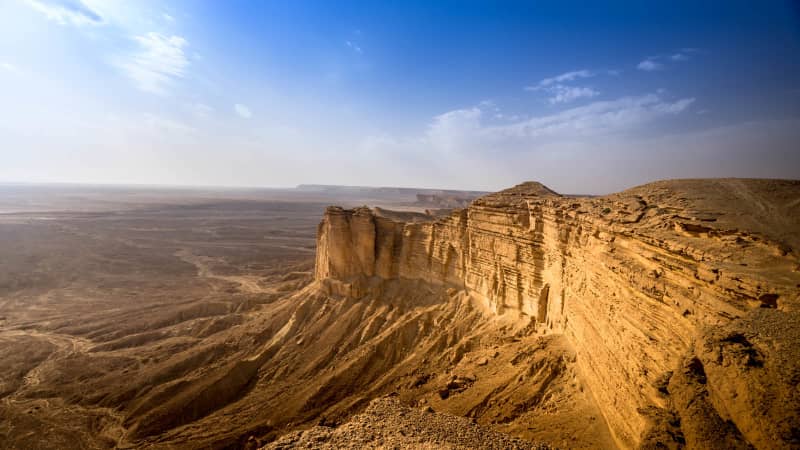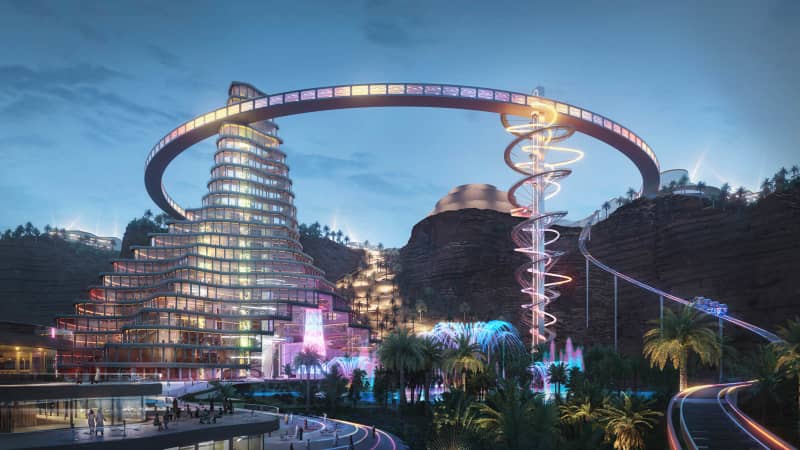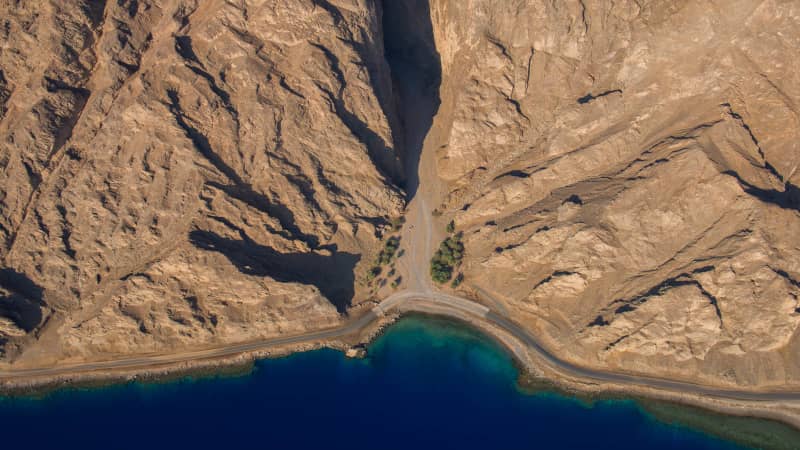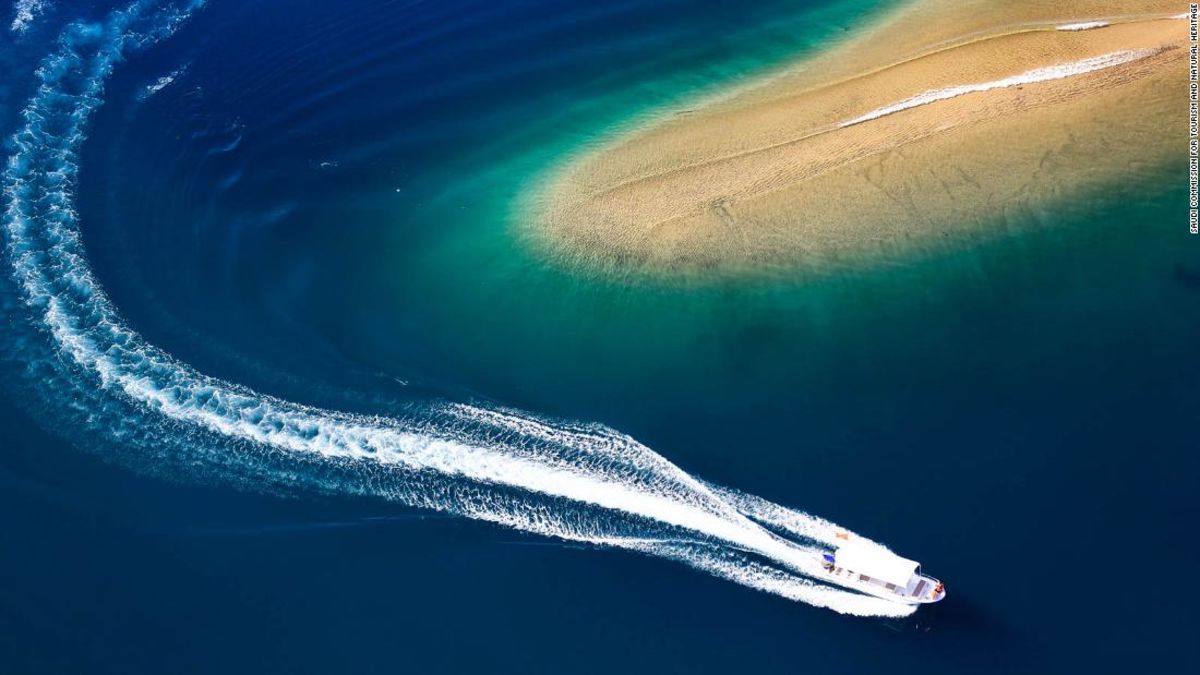(CNN) — It’s got year-round sunshine. It’s got incredible beaches. It’s got ancient historical sites. It’s got theme parks. It’s got luxury hotels. It’s got adventure. It’s got relaxation.
So why isn’t this destination a hotspot for tourists?
Because it’s Saudi Arabia, and until now, unless they were making a religious pilgrimage to Mecca or were in town for business, tourists weren’t exactly lining up to visit.
The country’s international reputation as a human rights black spot, its conservative laws that restrict the freedoms of women and the regional tensions that recently resulted in attacks on its oil industry, are not exactly travel brochure selling points.
But Saudi Arabia wants all that to change. The Arabic kingdom is throwing its doors wide to international tourism in an attempt to rebrand itself as a travel destination to rival Gulf neighbors like Dubai, Oman and Abu Dhabi.
As of September 27th, travelers from 49 different countries will be able to enter Saudi through an e-visa and visa-on-arrival.
Behind the move is a long-term plan to steer the country’s economy away from its reliance on the petrodollars that have flowed since the 1930s. If tourism matches Saudi dreams, millions will come, bringing new jobs, new wealth and, potentially, a whole new way of life.
Security concerns

The “Edge of the World” — on of Saudi Arabia’s geological wonders.
Courtesy Saudi Commission for Tourism and Heritage
The Saudis call this plan Vision 2030. In just over a decade, they expect annual visitors to reach 100 million — twice the number of people who currently travel to Italy each year — boosting the local economy to the tune of billions of dollars.
“This is a game-changer for the Saudi tourism industry, which previously only catered for international tourists either for religious or corporate purposes,” says Imad Damrah, managing director of real estate agents Colliers International in Saudi Arabia.
Human rights groups like Amnesty International have, as recently as 2018, reported that “authorities severely restricted the rights to freedom of expression, association and assembly.”
Saudi authorities won’t respond to direct questions about such issues, preferring to focus on the change ahead. “Saudi Arabia is at the beginning of its journey as a tourism destination,” a spokesperson for the Saudi Commission for Tourism told CNN.
Mega cities, mega resorts

Saudi’s new Qiddiya is planned as the world’s biggest entertainment city.
Courtesy Saudi Commission for Tourism and Heritage
To help pave the way, the country’s leader, Crown Prince Mohammed bin Salman, has been enacting a series of cultural reforms, restricting the powers of its religious police, allowing mixed gender pop concerts and issuing driver’s licenses to women.
“The Kingdom is investing heavily in tourism infrastructure,” says John Pagano, CEO of the Red Sea Development Company, which is overseeing the development.
The 28,000 square kilometer Red Sea Project alone is projected to create 35,000 direct jobs and 35,000 indirect jobs, and contribute an estimated $5.8 billion per year to the kingdom’s economy, says Pagano.
It also has experience in installing modern transport links, with recent upgrades to the network built to handle the Hajj, an annual pilgrimage to Mecca in Saudi Arabia that attracts over two million people.
Professional class of tourist
Comparisons to the dramatic transformation of Saudi’s UAE neighbors — now seen as well-established tourism destinations catering to a variety of budgets and interests — are inevitable, but experts say that while there will be some overlap, they’re not necessarily catering to the same markets.
“Saudi Arabia will never outshine Dubai, but I don’t think it wants to,” says Kevin Newton, executive director of Newton Analytical, a company that provides analysis on the Islamic world. “It wants to focus on family-friendly activities. This helps build Saudi Arabia’s reputation with the Muslim world, but also shows that the country is so much more than oil and the Hajj.”
Newton says Saudi officials know that their initial market will be other Muslim countries.
“That does not mean that Westerners — or anyone else, for that matter — are being ignored,” he adds. “Because of the Hajj, many Saudis in the hospitality industry already have a number of skills that can quickly apply to more general tourism, principal among them proficiency in English.
“Given that the promotional material for Neom features women wearing Western workout and leisure attire, it is clear that Saudi Arabia is seeking to attract a professional class of tourist who would otherwise frequent Dubai.”
Yet will all of Saudi Arabia’s recent controversies harm the country’s goal of becoming a tourist hub?
“Yes and no,” says Newton. On the one hand, he adds, a controversial reputation is never good for tourism. “On the other hand, Saudi Arabia is aware that the world has a short memory.

Saudi Arabia is turning a huge area into a $500 billion metropolis.
Courtesy Saudi Commission for Tourism and Heritage
“Right now, Saudi Arabia’s decision to list [Saudi national oil company] Aramco publicly is gaining much more traction than any lingering stories about the Khashoggi assassination.”
Several major challenges stand in the way, Newton continues.
This includes Saudi Arabia’s ban on alcohol, which other Gulf Cooperation Council states allow. “Also, while considerable progress has been made in the past two years, women’s rights are still not on par with international standards,” he adds.
Tourism will be driven by more adventurous types, continues Newton.
“Luckily they have the potential to be more likely to spend more, and Saudi Arabia still has a lot to offer them beyond another stamp in their passport.”
‘Mysterious and unexplored’
“The image of KSA was not very positive back then, but I decided to go and find out for myself what it’s really like, instead of listening to the opinions of people who had never even been there,” she adds.
“Saudi Arabia is one of the last unexplored regions on Earth. Full of history, unique culture, and diverse landscapes,” she says.
“The fact it felt mysterious and unexplored appealed to me as well. From the very first day I arrived in Saudi, I began exploring, and haven’t stopped to this day.”
Alho shares her Saudi-focused travels on social media to nearly 63,000 followers, and says that curiosity around KSA has been growing.
“I get contacted almost daily by people interested in traveling to Saudi Arabia.”
Marc Nouss, a Paris-based travel photographer and social media influencer, has traveled to Saudi Arabia twice on sponsored press trips.
“I was a bit full of stereotypes regarding the country, so I had only good surprises,” says Nouss, who shared his travels to 100k followers. Nouss visited the historic desert of Al-Ula and the mountains of Al-Soudah.
“The kindness of the people living there was the most beautiful. I travel a lot but this country is on my top two for the kindness of its inhabitants,” he says.
“Saudi Arabia is preparing to open tourism to visitors,” adds Nouss. “This is pretty obvious. And honestly they will do well, as this country is rich in culture and history.”
